Top Five Industries That Rely on Secure Data Shredding Services
Top Five Industries That Rely on Secure Data Shredding Services
Protecting sensitive data is no longer just a concern—it's a necessity. With increasing cyber threats and strict data privacy regulations, industries across the board are prioritizing secure data shredding services to safeguard confidential information.
When businesses need to dispose of old documents, hard drives, or electronic devices, it’s not as simple as tossing them in the trash. Without proper destruction, sensitive data can fall into the wrong hands, leading to data breaches, identity theft, and regulatory penalties. That's where secure data shredding services, like those provided by DataShredder Corporation, come in.
But who relies on these services the most? Below, we’ll explore the top five industries that depend on secure data destruction to protect their information and maintain compliance.
Why Secure Data Shredding is Essential
Before we dive into the industries, it’s important to understand why secure data shredding is so critical.
- Data Protection and Privacy: Proper destruction ensures that sensitive data—whether on paper, hard drives, or other media—cannot be recovered or misused.
- Regulatory Compliance: Laws like HIPAA (Health Insurance Portability and Accountability Act) and GDPR (General Data Protection Regulation) require businesses to handle data securely, including how it's destroyed.
- Reputation Management: Data breaches can severely damage a business's reputation. Taking measures to securely dispose of data builds customer trust.
- Environmental Impact: Many shredding services also include recycling, ensuring that old electronics and paper are disposed of responsibly.
Now that we’ve covered the "why," let's look at the industries that cannot afford to compromise when it comes to secure data shredding.
1. Healthcare
When it comes to sensitive data, few industries handle more critical information than healthcare. Hospitals, clinics, and other medical organizations deal with detailed patient records, including health histories, test results, billing information, and more.
- Why Data Shredding Matters: Healthcare organizations must comply with stringent regulations like HIPAA, which mandates secure disposal of patient information. Failing to do so can result in hefty fines and loss of trust.
- Common Items to Destroy: Paper records, old medical equipment, X-rays, and digital backups of patient records stored on hard drives.
By partnering with secure shredding providers like DataShredder, healthcare facilities ensure that all patient data is irretrievably destroyed while maintaining compliance.
2. Financial Services
Banks, insurance companies, investment firms, and other financial institutions work with sensitive client data every day—from social security numbers to credit card details and tax returns.
- Why Data Shredding Matters: This industry is a primary target for hackers due to the highly sensitive nature of its data. Financial institutions must comply with regulations like the Gramm-Leach-Bliley Act (GLBA) and Sarbanes-Oxley Act (SOX).
- Common Items to Destroy: Hard drives, financial statements, client contracts, checks, and outdated banking equipment like ATMs.
Secure data shredding protects both the institution and its clients, ensuring that financial information doesn't end up in the wrong hands.
3. Legal and Professional Services
Law firms and other professional service providers like accounting firms manage confidential documents for clients, often containing personal, financial, and legal insights.
- Why Data Shredding Matters: Attorneys and accountants are bound by confidentiality agreements, and breaching those agreements could have serious legal consequences.
- Common Items to Destroy: Client files, contracts, tax documents, legal drafts, and digital records.
A reliable shredding service ensures that sensitive client data is permanently disposed of, allowing legal professionals to focus on their work without worrying about data security risks.
4. Technology and IT
The tech industry relies on vast amounts of data to drive its innovations. With that reliance comes the challenge of protecting and disposing of obsolete technology and equipment.
- Why Data Shredding Matters: Old servers, hard drives, and other IT assets can store significant amounts of sensitive information, even if they’re no longer in active use. Companies in this space must comply with data protection laws like GDPR and CCPA.
- Common Items to Destroy: Hard drives, servers, mobile devices, and other IT equipment.
Secure shredding makes it easy to safeguard data while responsibly recycling e-waste.
5. Government and Education
Both government agencies and educational institutions collect massive amounts of sensitive data, from student records to classified information.
- Why Data Shredding Matters: Mismanagement of data can lead to breaches of privacy and pose security risks. Government agencies must follow data security protocols, while schools need to comply with FERPA (Family Educational Rights and Privacy Act).
- Common Items to Destroy: Student files, faculty records, classified government files, and outdated electronics.
Secure shredding ensures compliance while preserving the public's trust.
How DataShredder Corporation Can Help
DataShredder Corporation specializes in secure data destruction and electronics recycling in Massachusetts. Here’s why industries trust us with their sensitive data disposal needs:
- Hard Drive Data Destruction: We securely shred hard drives and media at our facility.
- Media Destruction: From mobile devices to USB drives and backups, we safely dispose of all forms of data.
- Paper and Document Shredding: Affordable, onsite shredding services for all your paper documents.
- Electronics Recycling: We recycle old equipment responsibly, adhering to the highest environmental standards.
- Fast Turnaround Times: We provide efficient service without compromising security.
Whether you're in healthcare, finance, or any other industry, we ensure your sensitive data is destroyed securely and responsibly.
Are you ready to securely dispose of your hard drives?
Do you have old devices lying around? Don’t wait for them to gather dust. At Data Shredder Corporation in Massachusetts, we understand how crucial it is to destroy sensitive data securely and recycle e-waste.
We're here to offer you the best data destruction, shredding, and e-waste recycling services in Massachusetts, ensuring your peace of mind while contributing to the planet's health. We also provide top-notch hardware asset management services.
Your trust is our top priority, and we're dedicated to safeguarding your information with our certified, dependable solutions. Before a security breach even whispers your name, give us a call at(508) 978-4906 or fill out our
contact form.

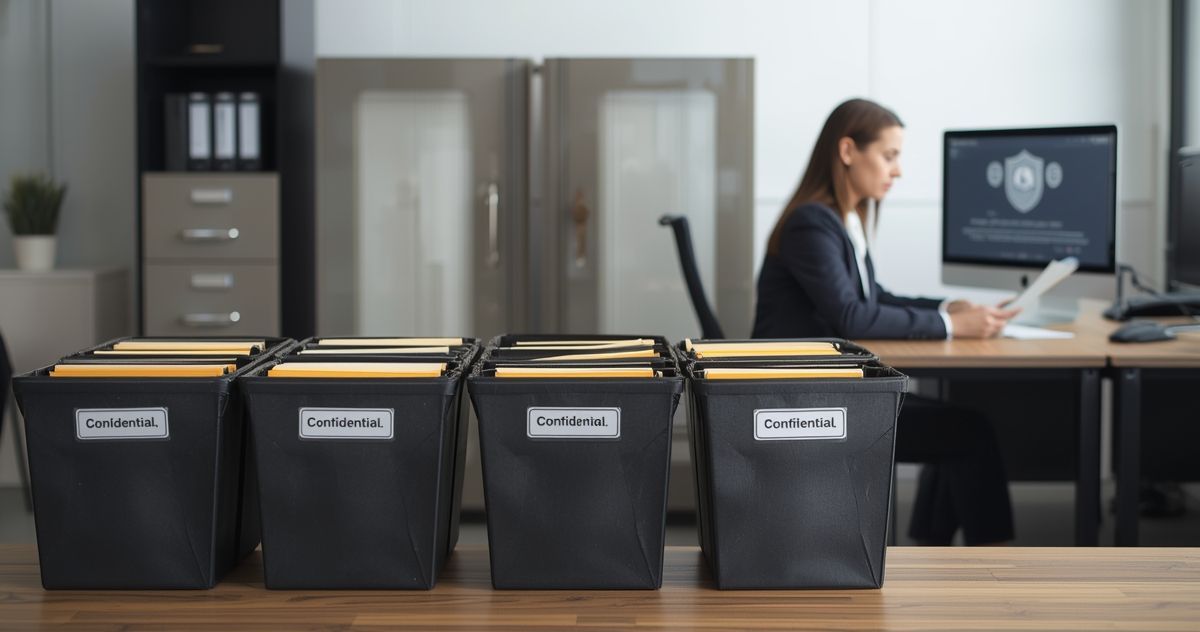
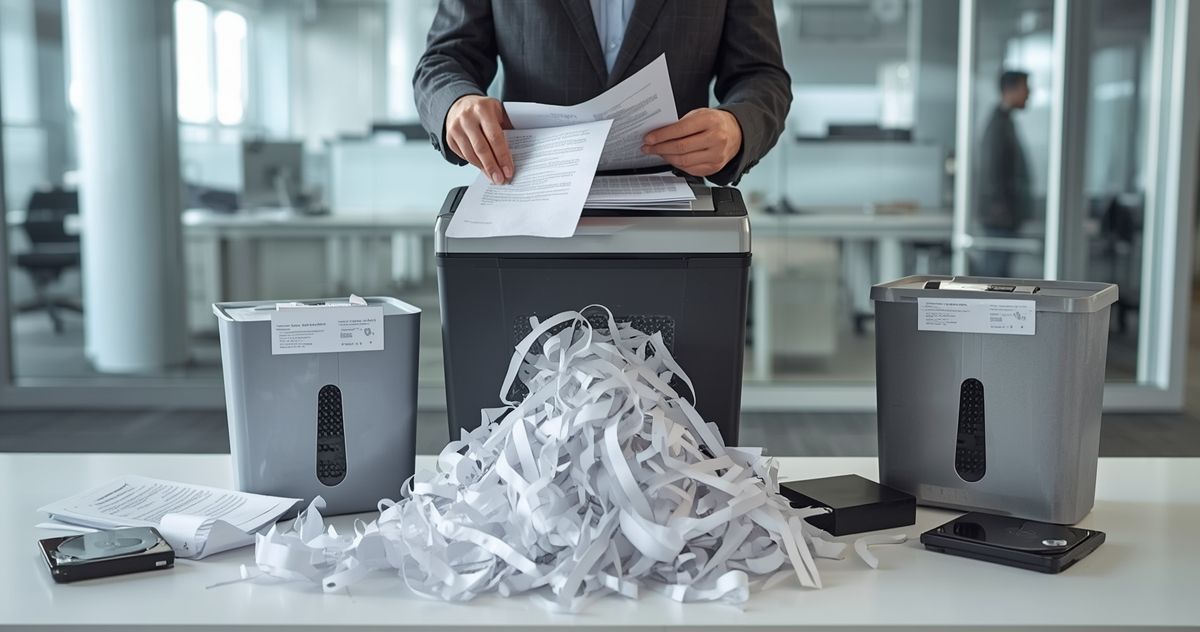


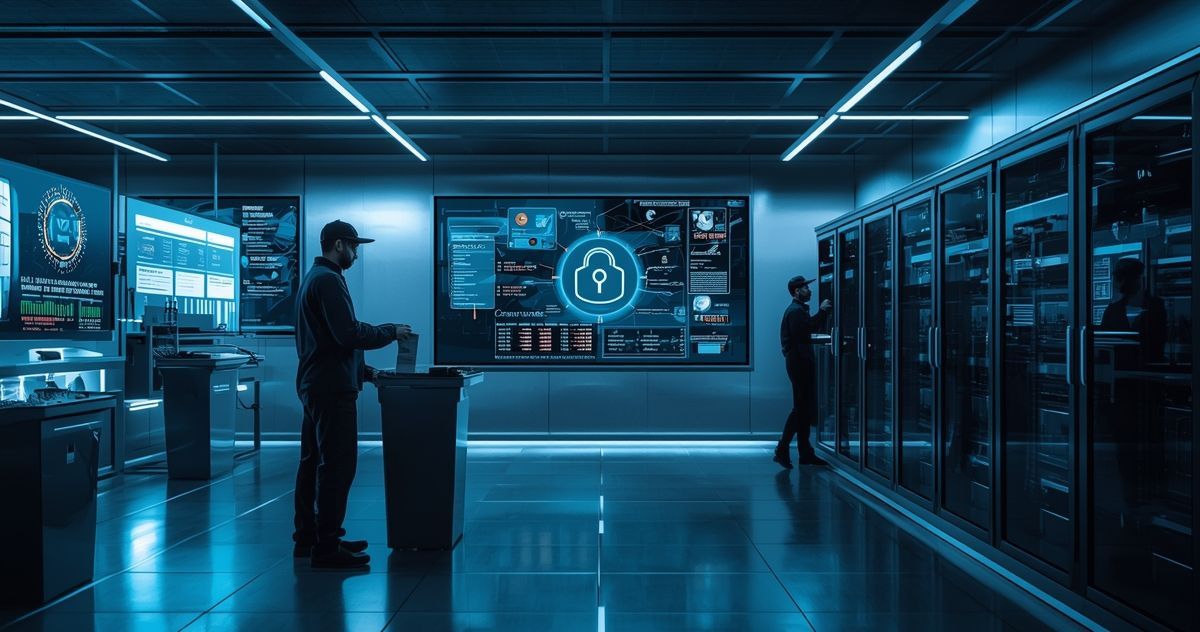

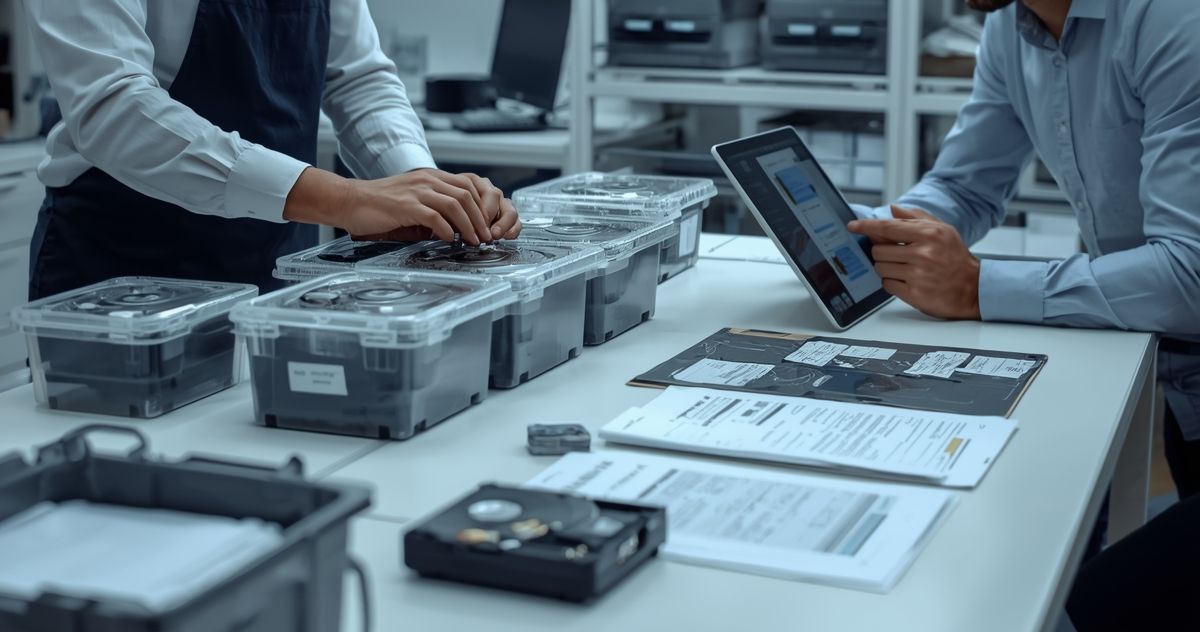

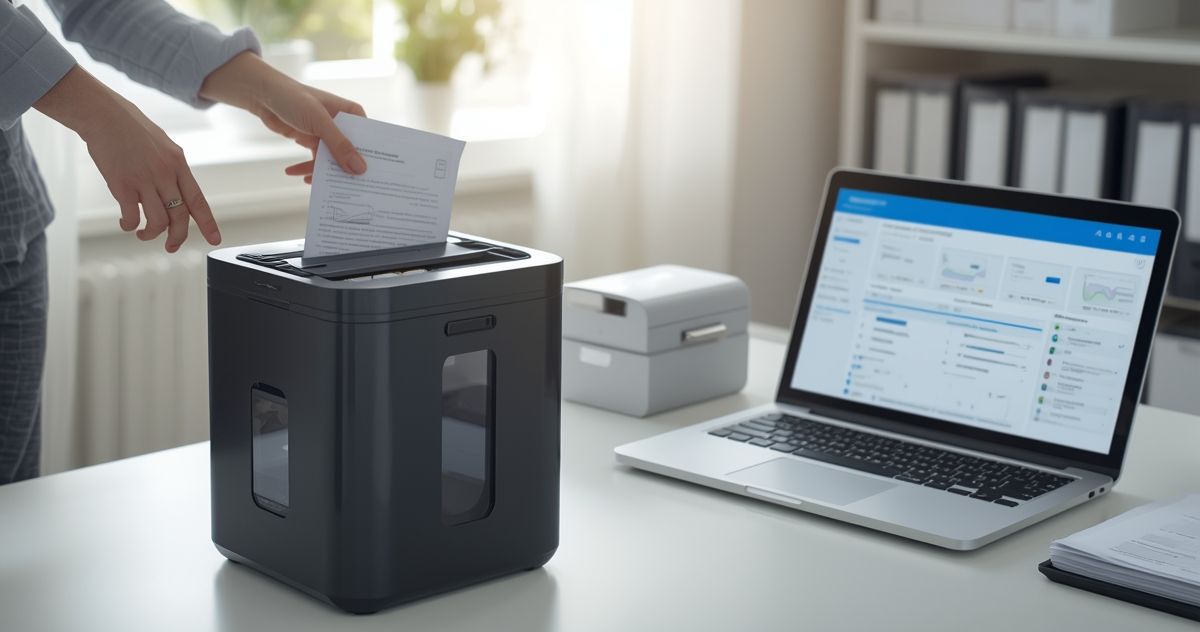

Share On: